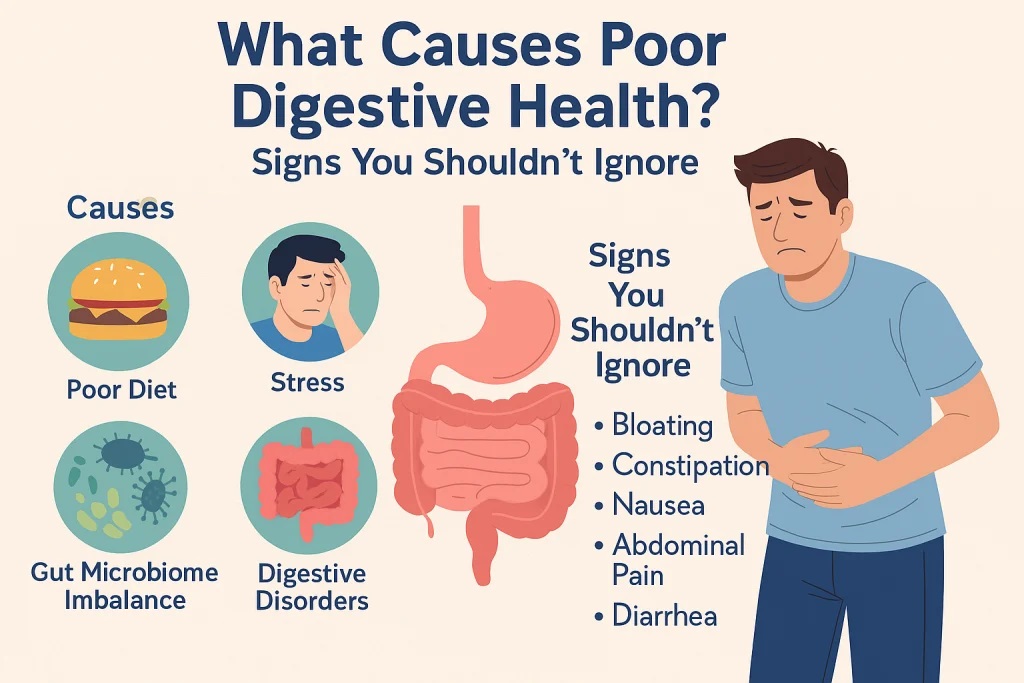Digestive health issues are no longer confined to older adults, as a growing number of Millennials and Gen Z individuals are scheduling appointments with gastroenterologists for persistent symptoms that extend far beyond occasional stomach discomfort. Younger generations are increasingly seeking specialized care for conditions like irritable bowel syndrome, acid reflux, inflammatory bowel disease, and concerning digestive symptoms that significantly impact their daily lives.
Several interconnected factors drive this healthcare trend, including heightened awareness through social media platforms, dietary changes involving processed foods and restrictive eating patterns, and stronger recognition of the connection between mental health and gut function. These generations approach their health proactively, choosing to investigate root causes of symptoms rather than dismissing them as normal stress responses.
The rising rates of gastrointestinal conditions among younger adults, including early-onset colorectal cancer cases, underscore the importance of understanding the underlying risk factors, recognizing key warning symptoms, and implementing effective prevention strategies. This shift represents both a concerning health trend and a positive change in how young people prioritize their digestive wellness.
Rising Gastrointestinal Concerns in Millennials and Gen Z
Colorectal cancer rates have nearly doubled among adults under 50 since the early 1990s, with millennials facing double the risk compared to baby boomers. Early-onset gastrointestinal cancers increased by nearly 15% between 2010 and 2019, particularly affecting those in their late 20s and early 30s.
Alarming Trends in Colorectal and Colon Cancer
Colorectal cancer cases among millennials and Gen Z have reached concerning levels. The rate increased from 8.6 cases per 100,000 people in 1992 to 12.9 cases per 100,000 in 2018.
The biggest rise occurred in adults aged 40-49. However, cases now appear regularly in patients as young as their mid-20s, often presenting with advanced disease at diagnosis.
Key statistics include:
- Cases have doubled in recent years for younger generations
- Death rates remain unchanged at 2.8 per 100,000 in younger adults
- Early-onset gastrointestinal cancers represent one of the fastest-growing cancer threats
Colon cancer no longer discriminates by age. Younger adults experience the same warning signs as older individuals, including changes in bowel habits, blood in stool, fatigue, and abdominal pain.
Diagnosis delays occur frequently due to misconceptions that young people face lower cancer risks. Symptoms are often mistaken for less serious conditions like irritable bowel syndrome.
Changing Patterns in GI Health Among Young Adults
Millennials lead other generations in seeking digestive health solutions. They report more doctor visits, dietary changes, and supplement use related to gut health concerns.
Many patients suspect their symptoms connect to specific foods. However, identifying triggers proves challenging without professional guidance from gastroenterologists or GI-focused dietitians.
The American diet contributes significantly to rising cancer rates. It typically includes:
- Insufficient fruits and vegetables
- Reliance on refined grains
- Excessive ultra-processed foods
- High sugar, fat, and sodium content
Ultra-processed foods increase risk for multiple cancer types. These include obvious choices like candy and fast food, plus products marketed as healthy such as protein bars and vegan meats.
Environmental factors also play crucial roles. Endocrine-disrupting chemicals and airborne pollutants disturb healthy gut bacteria balance, causing inflammation that can lead to cancer.
Notable Demographic Shifts in Diagnosis
Gen Z and younger millennials show higher stress and anxiety levels, particularly following the pandemic. Mental health concerns directly impact digestive health patterns.
The “birth cohort effect” suggests people born after 1950 face higher risks. They experienced greater exposure to environmental changes and pollutants throughout their lives.
Diagnosis patterns reveal:
- Patients present earlier with more advanced disease
- Warning signs mirror those in older adults
- Recognition and prompt medical attention remain critical
Healthcare professionals now focus on boosting screening among eligible populations. Early detection significantly improves treatment outcomes, especially for younger adults not typically considered at risk.
Public awareness campaigns target millennials and Gen Z specifically. Ongoing research examines biomarkers, non-invasive screening methods, and molecular differences in tumors found in younger patients.
The rise affects all gastrointestinal cancers, including pancreatic and esophageal types. Researchers work to understand underlying causes while advocacy groups promote increased screening awareness.
Key Symptoms Leading to Gastroenterology Visits
Young adults typically seek gastroenterology care when experiencing persistent rectal bleeding, chronic abdominal pain, or significant changes in bowel patterns. These symptoms often prompt initial consultations and can indicate underlying conditions requiring professional evaluation.
Rectal Bleeding and Persistent Abdominal Pain
Rectal bleeding represents one of the most concerning symptoms driving young adults to gastroenterologists. Blood in stool can appear bright red or dark, indicating different locations within the digestive tract.
Many patients initially dismiss minor bleeding as hemorrhoids. However, persistent or recurring episodes warrant medical evaluation, especially given rising colorectal cancer rates in younger populations.
Abdominal pain patterns help gastroenterologists identify potential conditions:
- Upper abdominal pain: Often indicates acid reflux or GERD
- Lower left pain: May suggest IBS or inflammatory bowel disease
- Cramping with meals: Could indicate food intolerances
- Chronic, dull pain: Requires investigation for IBD or other conditions
Gastroenterologists like Kevin Tin MD in Brooklyn and Queens emphasize that persistent abdominal pain lasting more than two weeks needs professional assessment. Pain accompanied by weight loss, fever, or bleeding requires immediate attention.
Changes in Bowel Habits and Movements
Significant alterations in bowel movements often prompt gastroenterology visits among Millennials and Gen Z. Normal bowel patterns vary widely, but sudden changes lasting several weeks indicate potential issues.
Key changes requiring evaluation include:
| Symptom | Duration of Concern | Potential Causes |
|---|---|---|
| Persistent diarrhea | >3 weeks | IBD, IBS, food intolerances |
| New constipation | >2 weeks | Motility disorders, dietary factors |
| Alternating patterns | Ongoing | IBS, medication effects |
| Narrow stools | Persistent | Structural changes, inflammation |
Bowel habits encompass frequency, consistency, and associated symptoms. Patients often report needing to strain excessively, feeling incomplete evacuation, or experiencing urgent needs.
Changes in stool appearance, including mucus, blood, or unusual colors, warrant gastroenterology consultation. These modifications can indicate inflammation, bleeding, or malabsorption issues requiring diagnosis through specialized testing.
Early Signs Young Adults Should Not Ignore
Several warning signs require immediate gastroenterology evaluation, particularly given increasing cancer rates in younger adults. Early detection significantly improves treatment outcomes across all digestive conditions.
Critical symptoms include:
- Unexplained weight loss exceeding 10 pounds
- Persistent fatigue with digestive symptoms
- Family history of colorectal cancer with new symptoms
- Iron-deficiency anemia without obvious cause
Young adults often delay seeking care, attributing symptoms to stress or dietary choices. However, persistent symptoms lasting more than four weeks need professional evaluation.
Colonoscopies may be recommended earlier than traditional screening ages when symptoms suggest serious conditions. Gastroenterologists now commonly perform diagnostic procedures on patients in their twenties and thirties.
Specialists at practices like LocalMD in NYC report seeing patients who waited months before seeking care. Early consultation allows for proper diagnosis and treatment planning before conditions progress or complications develop.
Underlying Factors Contributing to Increased Risk
Several interconnected factors create a perfect storm for digestive health issues among younger generations. Poor dietary choices, reduced physical activity, and disrupted gut bacteria work together to increase gastrointestinal problems.
Lifestyle Behaviors and Processed Foods
Millennials and Gen Z consume significantly more processed foods than previous generations. These foods contain high levels of preservatives, artificial additives, and refined sugars that irritate the digestive tract.
Common processed foods affecting gut health:
- Fast food meals with trans fats
- Packaged snacks high in sodium
- Sugary beverages and energy drinks
- Processed meats with nitrates
Ultra-processed foods make up nearly 60% of calories consumed by young adults. These products lack fiber and essential nutrients while containing inflammatory compounds.
The convenience culture drives these dietary choices. Busy schedules, financial constraints, and limited cooking skills push younger generations toward quick meal solutions.
Key inflammatory ingredients:
- High fructose corn syrup
- Artificial preservatives (BHA, BHT)
- Emulsifiers and stabilizers
- Excess sodium and refined oils
Regular consumption of these substances damages the intestinal lining. This damage leads to increased intestinal permeability, commonly known as leaky gut syndrome.
Obesity, Sedentary Habits, and Lack of Exercise
Obesity rates among young adults have reached concerning levels, with 36% of millennials classified as obese. Excess weight creates chronic inflammation throughout the body, including the digestive system.
Sedentary lifestyles compound the problem significantly. Remote work and increased screen time reduce daily movement to minimal levels.
Physical activity benefits for digestion:
- Stimulates intestinal motility
- Reduces inflammation markers
- Improves blood flow to digestive organs
- Supports healthy weight maintenance
Less than 23% of adults aged 18-34 meet recommended exercise guidelines. This lack of movement slows digestion and contributes to constipation, bloating, and other gastrointestinal symptoms.
Stress from sedentary work environments triggers the body’s fight-or-flight response. This response diverts blood flow away from digestive organs, impairing their function.
Role of the Gut Microbiome
The gut microbiome contains trillions of bacteria that support digestive health and immune function. Modern lifestyles significantly disrupt this delicate bacterial balance.
Antibiotic overuse during childhood and young adulthood eliminates beneficial bacteria. Many young adults received multiple antibiotic courses, creating long-term microbiome imbalances.
Factors disrupting gut bacteria:
- Frequent antibiotic use
- High-stress environments
- Limited fiber intake
- Artificial sweeteners
- Inadequate sleep patterns
Processed foods feed harmful bacteria while starving beneficial strains. This imbalance leads to increased inflammation and compromised intestinal barrier function.
Chronic stress from economic uncertainty and social pressures alters gut bacteria composition. The gut-brain axis connects emotional stress directly to digestive symptoms through bacterial changes.
Young adults consume only 15 grams of fiber daily, well below the recommended 25-35 grams. Beneficial bacteria require fiber to produce short-chain fatty acids that protect the intestinal lining.
Prevention, Genetic Risks, and Proactive Health Strategies
Understanding inherited colorectal cancer risks and implementing targeted screening protocols enables younger adults to detect potential issues before symptoms develop. Lynch syndrome affects approximately 1 in 300 people and significantly increases cancer risk starting in the twenties and thirties.
Genetic Predispositions and Lynch Syndrome
Lynch syndrome represents the most common hereditary colorectal cancer condition. This genetic disorder increases lifetime colorectal cancer risk to 70-80% compared to 5% in the general population.
The condition results from mutations in DNA mismatch repair genes. These include MLH1, MSH2, MSH6, and PMS2 genes that normally prevent cellular DNA damage.
Key Lynch Syndrome Risk Factors:
- Family history of colorectal cancer before age 50
- Multiple relatives with colorectal or endometrial cancers
- Personal history of multiple primary cancers
- Tumors showing microsatellite instability
Genetic testing identifies Lynch syndrome carriers through blood or saliva samples. Results typically take 2-3 weeks and guide personalized screening recommendations.
Individuals with Lynch syndrome require colonoscopies starting at age 20-25. Annual or biennial screening becomes necessary rather than the standard 10-year intervals for average-risk patients.
Importance of Screening and Regular Colonoscopies
Regular screening detects precancerous polyps before they become malignant. Colonoscopies remain the gold standard for colorectal cancer detection and prevention.
Standard screening guidelines recommend starting at age 45 for average-risk individuals. However, those with family history or genetic predispositions need earlier intervention.
High-Risk Screening Timeline:
- Lynch syndrome: Age 20-25, then annually
- Family history: 10 years before youngest affected relative’s diagnosis
- Inflammatory bowel disease: 8 years after diagnosis
The procedure removes adenomatous polyps during examination. This prevents progression to invasive cancer in most cases.
Alternative screening methods include FIT tests and CT colonography. These options provide less comprehensive evaluation than traditional colonoscopy but offer increased accessibility for some patients.
Seeking Medical Advice and Early Treatment
Consulting gastroenterologists ensures appropriate risk assessment and screening protocols. Medical advice becomes particularly important for individuals with concerning symptoms or family histories.
Warning symptoms requiring immediate evaluation:
- Persistent abdominal pain or cramping
- Changes in bowel habits lasting over two weeks
- Blood in stool or rectal bleeding
- Unexplained weight loss or fatigue
Primary care physicians typically provide initial assessments and referrals. Gastroenterologists then develop personalized screening and monitoring plans based on individual risk factors.
Treatment approaches vary depending on findings. Polyp removal during colonoscopy prevents cancer development. Early-stage cancers often require surgical intervention with excellent survival rates exceeding 90%.
Genetic counselors help interpret test results and family planning decisions. They provide education about inheritance patterns and screening recommendations for family members.
Frequently Asked Questions
Young adults today face unique digestive challenges driven by stress, dietary changes, and increased health awareness. These factors contribute to rising rates of IBS, GERD, and food intolerances in younger populations.
What factors are contributing to the increased rates of digestive issues among Millennials and Gen Z?
Stress levels, processed food consumption, irregular eating patterns, and heightened awareness of digestive symptoms through social media drive increased gastroenterology visits among younger adults.
How does modern diet and lifestyle influence gastrointestinal health in younger generations?
Fast-paced lifestyles, ultra-processed foods, irregular meal timing, and high stress levels negatively impact gut health by disrupting normal digestive processes and gut microbiome balance.
Are there any specific gastrointestinal conditions that are more prevalent in Millennials and Gen Z compared to older generations?
IBS, GERD, food intolerances, and early-onset colorectal cancer show increased prevalence in younger adults, with rates of early-onset GI cancers rising nearly 15% between 2010 and 2019.
How does the healthcare system address the unique gastroenterological needs of younger patients?
Healthcare providers now offer increased telehealth access, specialized GI-focused dietitians, comprehensive food sensitivity testing, and personalized treatment plans tailored to younger patients’ lifestyles.
What role does mental health play in the digestive issues experienced by Millennials and Gen Z?
Anxiety and depression create a strong brain-gut connection that directly impacts digestive function, with stress serving as the primary contributor to gut health problems in younger generations.
What preventive measures are recommended for younger individuals to maintain optimal gastrointestinal health?
Regular meal timing, fiber-rich whole foods, stress management techniques, limited processed food intake, adequate hydration, and early medical consultation for persistent symptoms help maintain digestive health.






